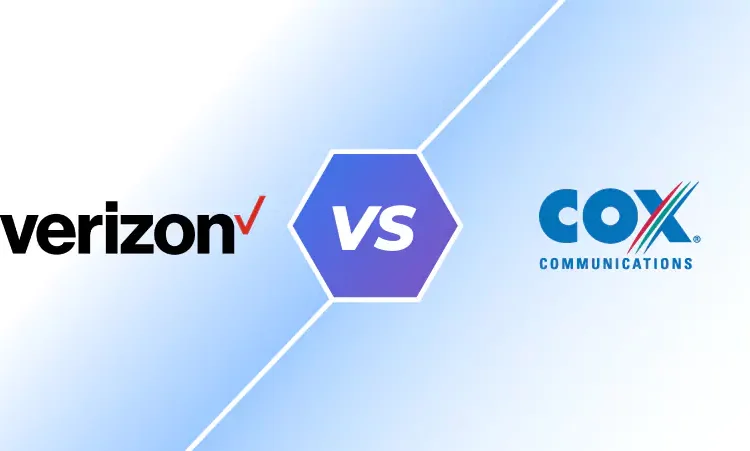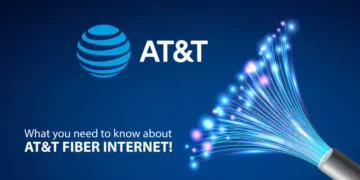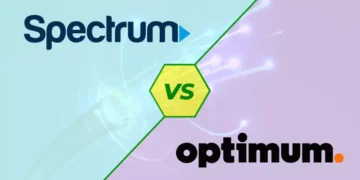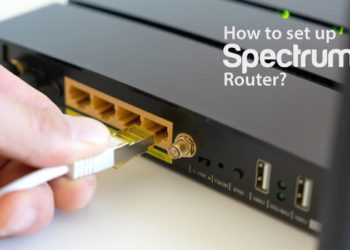Verizon Fios and Cox stand out as two internet giants offering unique features and advantages in the competitive world of internet service providers (ISPs), s. When choosing between these industry leaders, understanding their prime distinctions is crucial.
Verizon Fios is leading the ISP industry with its fiber-optic technology, which sets the stage for lightning-fast speeds and unparalleled reliability. From seamless streaming to lag-free gaming, Fios caters to those who demand the utmost performance from their internet connection.
On the other hand, Cox is popular for its affordability and flexibility, providing a range of plans suited for various budgets and usage needs.
As you navigate the world of ISPs, weighing the prime distinctions between Verizon Fios and Cox Internet will help you make an informed decision based on your needs and preferences.
A comparison chart of Verizon Fios vs. Cox Internet providers
It’s time to check quick distinctions between Verizon Fios vs Cox.
Comparison Criteria | Verizon Fios | Cox Communications |
Speed | 300-2048 Mbps | 100-1000 Mbps |
Availability | Available in 210 countries and destinations outside the USA. | Available in selected states (19 states) |
Ease of Subscription | Online and phone options for sign-up. | Online and phone options for sign-up. |
Installation fee | $99.00 (Waived if you order online) | $100 (professional installation) Free (Self-installation) |
Streaming Experience | Good quality streaming experience with zero buffering. | Quality streaming experience without buffering. |
Consistency | Generally reliable and consistent service. | Generally reliable and consistent service. |
Pricing | Starts from $49.99/month and ends at $119.99/month | From $49.99/month and ends at $109.99/month |
Package speed (Minimum) | 300 Mbps | 100 Mbps |
Contract | Month to month | Annual and month to month |
Customer Service | Overall: 3.9/5 | Overall: 3.6/5 |
Equipment | No extra cost | $13.00/mo. for panoramic Wi-fi |
Internet type | Fiber, DSL | Cable |
Security Feature | Basic security suite included (McAfee Active Protection) | Basic security suite included (Cox Security Suite Plus powered by McAfee®) |
Data Caps | No data caps | 1.25 TB |
How do we compare and select the best one for you?
Primarily, we evaluate the speed and reliability of the internet connection. You can’t achieve a seamless online experience without fast and consistent speeds.
Secondly, availability is important because it ensures the provider covers your location. Additionally, we consider the ease of subscription, looking for convenient online and phone options that make the sign-up process hassle-free.
We also emphasize the feedback and experiences shared by existing customers. We made a complete comparison by considering their satisfaction with the service, customer support, and overall reliability.
Furthermore, pricing is crucial, and we examine each provider’s plans and pricing options. Besides, we looked into additional fees or equipment costs to provide you with the most updated information.
Comparison of Services between Fios and Cox Internet
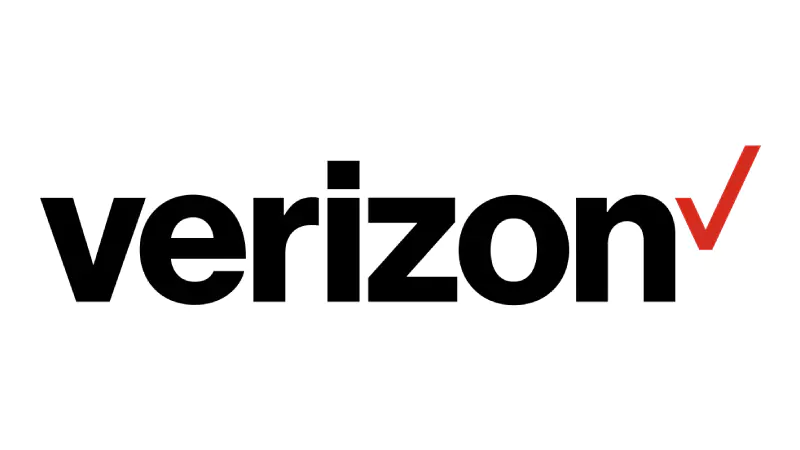
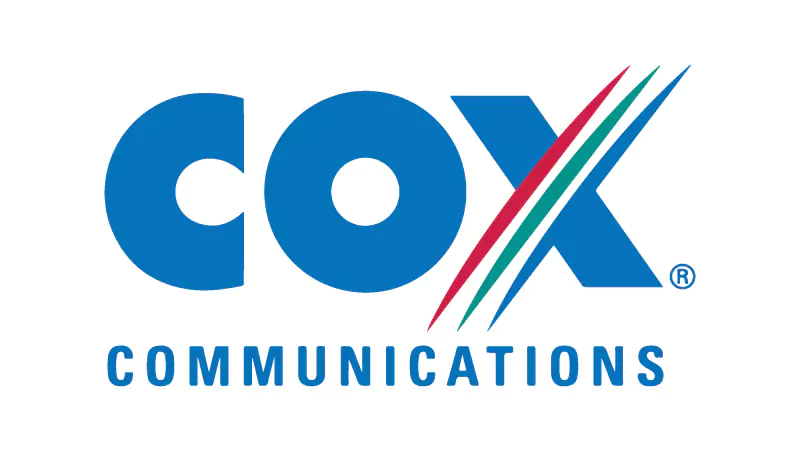
Let’s compare their services.
Reliability
Regarding internet services, Verizon Fios and Cox Internet employ different technologies to deliver reliable connections to our doorstep. Verizon Fios primarily utilizes fiber-optic technology known for its lightning-fast speed Internet and exceptional reliability.
On the other hand, Cox predominantly relies on cable infrastructure. It’s designed to provide reliable internet access via coaxial cables. When discussing the expensive packages, Verizon provides a maximum $119.99 package, while Cox provides a $109.99 package.
Connection type
Both ISPs also offer DSL (Digital Subscriber Line) connections that supply lower speeds than their fiber and cable counterparts.
Speeds
As speed directly impacts your online experience, both ISPs have taken strong measures. Verizon Fios and Cox Internet provide varying download and upload speeds to meet the needs of different users.
Wiring
Verizon Fios boasts impressive speeds, with their fiber-optic connections reaching up to 940 Mbps on average for downloads and uploads. Its strong competitor Cox Internet offers cable connections that can provide download speeds of up to 1 Gbps to ensure smooth streaming, gaming, and browsing experiences.
Additional services
Beyond internet services, both Verizon Fios and Cox Internet offer additional services to enhance their customers’ entertainment options. Verizon Fios offers TV and phone bundles to ensure seamless connectivity across multiple devices and access to a wide range of television channels.
Cox also provides similar bundles to ensure customers have access to diverse entertainment options.
Network Coverage and Availability
Verizon Fios primarily operates in select areas across the United States. They are notable in New York, New Jersey, Pennsylvania, and California.
On the other hand, Cox has a more concentrated coverage area. They’re covering states like Arizona, California, Virginia, and Louisiana.
Availability is crucial when evaluating an ISP for urban and rural areas. In urban centers, population density is high, so ISPs must ensure comprehensive coverage.
Urban areas typically benefit from robust infrastructure, which enables ISPs to deliver high-speed internet services to a larger consumer base. Fios focuses more on urban areas, while Cox extends its services to a mix of urban and rural regions.
According to Federal Communications Commission (FCC), the availability of broadband services is a critical aspect of bridging the digital divide. The FCC’s data indicates that Verizon Fios covers 143.3 million U.S. population, while Cox serves 6.5 million customers.
Pricing and Plans
Let’s find out what packages the two service providers offer you.
Verizon Fios Internet Plans
Verizon Fios Plan | Pricing | Speed & Data Caps |
Internet 300/300 | $49.99/mo.* | 300 Mbps/300 Mbps |
Internet 500/500 | $64.99/mo.* | 500 Mbps/500 Mbps |
Internet 1 Gig | $89.99/mo.** | Up to 940 Mbps/up to 880 Mbps |
Internet 2 Gig | $119.99/mo. | Up to 2,048 Mbps/up to 2,048 Mbps |
5G Home Internet | $50.00/mo., $25.00/mo. for Unlimited mobile subscribers | Up to 300 Mbps |
5G Home Internet Plus | $70.00/mo., $35.00/mo. for Unlimited mobile subscribers | Up to 1,000 Mbps |
5G Home Internet Plus | $70.00/mo., $35.00/mo. for Unlimited mobile subscribers | Up to 1,000 Mbps |
LTE Home Internet | $50.00/mo., $25.00/mo. for Unlimited mobile subscribers | 25-50 Mbps |
Cox Internet Plans
Cox Internet Plan | Pricing | Speed & Data Caps |
Cox Go Fast | $49.99/mo.* Additional Fee: $13.00/mo. (Panoramic Wi-Fi) | 100 Mbps/3 Mbps |
Cox Go Faster | $59.99/mo.* | 250 Mbps/10 Mbps |
Cox Go Even Faster | $79.99/mo.* | 500 Mbps/10 Mbps |
Cox Go Super Faster | $109.99/mo.* | Up to 1,000 Mbps/35 Mbps |
Fees
Verizon typically applies a wifi activation fee when setting up a new internet connection. The exact amount may vary, so it is recommended to consult Verizon’s customer service for the most up-to-date information.
Regarding modem rental fees, Verizon and Cox offer the option to rent a modem from them. Verizon charges a monthly rental fee, which can range from $15 to $20. Cox also charges a monthly modem rental fee of around $10 to $15 per month.
Regarding termination fees, both Verizon and Cox may count early termination fees associated with specific plans. The termination fee amount can vary based on factors such as the remaining duration of the contract and the specific terms and conditions.
Customer Service and Reliability
Both Verizon Fios and Cox offer multiple channels for assistance, such as phone, online chat, and email. This way, they ensure that users can easily reach out for instant help.
Both ISPs have a reputation for reliability and customer satisfaction, consistently striving to deliver high-quality service. According to cabletv.com, 64% of rural users, 67% of suburban users, and 72% of urban users said they were satisfied with their ISP.
This site also reveals the customer satisfaction survey 2023, which expresses that 80% of Verizon users are satisfied with their service.
Verizon Fios and Cox may provide service level agreements (SLAs) or uptime guarantees that ensure a certain level of reliability and minimal downtime for their customers.
Additional Features and Benefits
Verizon Fios and Cox offer a range of additional features and benefits to enhance the user experience. Both ISPs provide Wi-Fi hotspot access that allows customers to stay connected on the go.
They also offer security features like antivirus software and firewalls to safeguard users’ online activities. Cox offers value-added services such as parental controls to manage and restrict their children’s internet usage.
Additionally, Cox provides online content streaming options for subscribers to enjoy diverse entertainment at their convenience.
User Reviews and Ratings
Based on the Customer Satisfaction Survey of 2022, both Verizon Fios and Cox have achieved positive feedback from customers. Verizon Fios shines with a remarkable reliability score of 3.9 out of 5 for a dependable internet connection.
Additionally, customers have praised Verizon Fios for their impressive speed rating of 4.0 out of 5, highlighting the consistent delivery of fast and responsive internet services.
Meanwhile, Cox has also received favorable ratings, albeit slightly lower than Verizon Fios. With a reliability score of 3.6 out of 5, Cox continues to offer a reliable internet connection, ensuring consistent performance for its users. The 3.9 out of 5-speed rating reflects Cox’s dedication to delivering satisfactory internet speeds, though it falls slightly behind Verizon Fios.
For whom is Verizon Fios suitable?
Verizon Fios is ideal for individuals, families, and businesses searching for reliable and high-speed internet service. With incredible fiber-optic technology, Verizon offers lightning-fast internet speeds for streaming enthusiasts, online gamers, and remote workers. Therefore, this ISP is the top choice for dependable and high-performance internet service.
For whom is Cox suitable?
Cox is suitable for individuals, families, and businesses, emphasizing affordability and flexibility in their internet service. From this ISP, you’ll get various plans tailored to different budgets and usage requirements for cost-conscious customers.
Additionally, Cox provides reliable internet speeds, which are good enough for everyday browsing, streaming, and light online gaming. However, Verizon ISP may be the better choice if customers care about ultra-fast speeds, consistent performance, and a wider array of customizable bundles.
Frequently Asked Questions
Let’s discuss some FAQs.
So which one to pick?
The best ISP ultimately depends on your priorities. If you value blazing-fast speeds, consistent performance, and fiber-optic infrastructure, Verizon Fios is the clear winner. It delivers an unrivaled online experience for streaming enthusiasts, gamers, and remote workers who demand the utmost reliability and speed.
Conversely, if affordability and flexibility are your top concerns, Cox emerges as a solid choice. Cox provides reliable internet connectivity at a more budget-friendly price point. While it may not offer the same ultra-fast speeds as Verizon Fios, it still ensures a dependable connection. If your priorities are speed, reliability, and a top-notch online experience, Verizon Fios is the clear winner. However, if affordability and flexibility are key factors, Cox is a solid choice.



